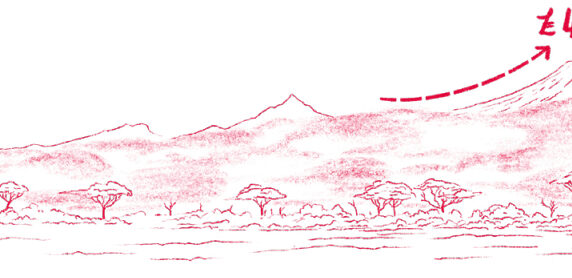Supporting Bond in walking the talk on decolonisation, meet our new advisory group
Like many organisations, the #ShiftThePower movement has led Bond to reflect on what decolonisation and locally led development mean for our work, particularly when we are a UK-based membership body for UK INGOs.
Do we have a helpful role to play on this agenda, or should we step aside? Is our role evolving in this space and what could that look like? In contributing to this agenda, how can we hold ourselves to account to ensure we do not step into spaces where we have no legitimacy or locus and avoid perpetuating old power dynamics?
We have established an advisory group made up of seven outstanding people representing feminist and youth movements, climate change and the diaspora community and are actively involved in networks on shifting power, decolonisation, and community-led development. In the first of two blogs, we asked group members, Moses Isooba, Executive Director at Uganda National NGO Forum and Chilande Kuloba-Warria, Founder and Managing Director at the Warande Advisory Centre what their hopes and aspirations are for both Bond and this new advisory group.
What are you hoping the advisory group will be able to change for Bond?
Moses: Northern organisations understand that they need to do development differently and address the structural issues that exist. Bond has been at the forefront of this with the Future Dialogues, Power in Development Conference, and has now taken the bold step of setting up this group. I hope this group will bring conceptual depth and that Bond will listen to the expertise and experience of people from the majority world.
Chilande: Bond is on the right track, and I hope the advisory group can accelerate you in the right direction by including often overlooked and unsung viewpoints, insights and perspectives on this ever-dynamic topic. With the beauty and complexities in terms of diversity of this group, we can enrich Bond’s thoughts about progressive and timely issues of concern. I hope that our contributions are captured comprehensively, especially in the language and tone you use, so that you increasingly project and “feel” like the diverse community you’re trying to influence.
What values and approaches for shifting power are you hoping to instil in Bond?
Moses: Bond needs to be vulnerable, take bold steps and have a willingness to change the way it works, its policies, culture and skillsets. Bond is a northern organisation trying to influence development in the South. The advisory group needs to bring this into Bond. The UK is sending money to the South and we have the power to influence how that is being spent. We can’t talk about locally led development and keep Southern actors out.
Chilande: Mutual respect! If all feel respected, we will continue to dignify and maintain the strength of the folks that we’re talking about and want to influence. I hope we truly embrace consensus building and ensure everyone is with us every step of the journey. I want to challenge Bond to practice what you are preaching. Keep on the path, avoiding distraction and also pause periodically to reflect, listen, question and embrace feedback. I encourage Bond to retain a healthy appetite of curiosity to ensure they remain relevant in these discussions.
We notice this is called an “advisory group”, what do you think is the difference between being advisory and holding Bond to account? How would you try and bridge the gap between both?
Moses: Every organisation has its structures and we do not want to repress the existing accountability structures – but we do want Bond to extract as many lessons and experiences as possible. We want to share our experience of being part of the Shift the Power movement and what it means to be on the receiving end of development. Bond needs to be in listening mode. As the old dictum goes, there is a need to use the ears and mouth in the God-given ratio of 2:1 which essentially means doing more listening than talking.
Chilande: To see change, you must keep repeating your message. Providing advice is exactly that. I hope we can provide insights and advice based on our real lived experiences and in this way, we can provide you with evidence that should make it difficult for you to ignore. I love the diversity of the team because we bring examples and evidence from different spaces, and we will have conversations that transcend geographical boundaries and cultures. While we may not have the “explicit” power to hold you to account, we do so by being valued peers who will repeat our message and engage in healthy dialogue that prompts the change we need to see in your systems and practices. This is a powerful means of enforcing accountability as peers. As a result, if we are effective in our role as advisors, we will automatically hold you accountable.
Becoming locally led as an anti-racist practice: a guide
Check out this toolkit designed to support your organisation shift its practice and use of power to become more locally led.
The guide supports international organisations based in higher-income countries, such as the UK, in partnership with colleagues from around the world, to shift their practice and use of power to become more locally led.
Get the toolkitWhat are the challenges and barriers faced when working to get a seat at the table in spaces traditionally dominated by Northern organisations?
Moses: The main challenge is trust. Many people in the South think we are where we are because the Northern INGOs have been resistant to change and have acted as gatekeepers. To those in the North, the Southern practitioner doesn’t understand what it is to raise resources and maybe hasn’t been a good student. Trust takes time and the conversation needs to be facilitated in a way that doesn’t lead to internal resistance. There is going to be a need to move the relationship from its default setting of control and mistrust to trust and coaching. The funding relationships need to gradually morph into partnerships.
Chilande: It’s a fine balance trying to ensure voices are not marginalised. The intention is not to get to a point where the overlooked get frustrated and desperate enough to think that their only option is to take drastic actions. Everyone’s voice needs to be heard at the table. If mine isn’t, I need to show self-leadership and take up space. People at the table should not be too far removed from the people they are talking about. We all have strong ties to the communities we work with and therefore have a responsibility to represent them adequately. The challenge is that information is not always readily available to the Global South actors who should be at these tables and our self-belief and confidence in contributing at these tables. As long as Global South leaders continue to feel undervalued, disrespected and lack confidence in these spaces, our voices will always be absent. We need more allies, champions and advocates in the Global North to always pull up a chair for us. This way, we meet halfway and make this a valuable experience for all.
Do you have any concerns about how previous advisory groups have functioned that you want to avoid whilst supporting Bond?
Moses: Everyone is talking about localisation – nobody wants to be left out. My concern is that INGOs don’t understand this is a process and mindset, it’s not an event and there isn’t a quick fix. I do not want “locally led development” to become a buzzword. We must not rush into making policies but instead spend time creating a body of knowledge.
Chilande: It is important that we find effective communication channels and a frequency that allows inclusion and a comfortable pace for everyone to be able to stay committed, and participate meaningfully and equitably. I would also like to see frequent rotation in obvious leadership roles to ensure everyone’s voice is heard and can influence the space.
How do you think other INGOs can hold themselves accountable to the communities they are supposed to serve? What advice would you give them?
Moses: It is imperative that INGOs have a people focus and remain truly wedded to the subsidiarity principle – the one closest to the problem would usually have the solution. That way, INGOs would be making an effort to hold themselves accountable to the communities. INGOs can also endeavour to work more closely with the national organisations who oftentimes are the “connectors” to the people. It is also important that INGOs appreciate the communities as co-investors and not beneficiaries. While INGOs bring money, the communities too have community assets which they bring to the development ecosystem. These include money, skills, knowledge, relationships and networks.
Chilande: If we can create peer accountability by spotlighting some INGOs that are doing accountability well, then others will feel embarrassed and pressured, and not want to be left behind. It is not one-sided. The community and local/national NGOs must stop entering a space with a mindset of disempowerment. If people understand that what they have is very valuable, as valuable as the money from the North, and we can meet in the middle, then we can then begin to demand accountability from INGOs.
Category
News & Views



